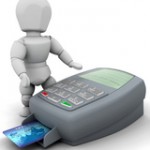 Banks are in business to make money. They accomplish this in a couple of different ways. First off, they earn interest on the money that they loan out. They pay part of this interest to their customers who have money market accounts, CDs and other interest-bearing accounts. They also make money from the fees they charge customers for things like checking account maintenance, ATM withdrawals, overdrafts and cashier’s checks.
Banks are in business to make money. They accomplish this in a couple of different ways. First off, they earn interest on the money that they loan out. They pay part of this interest to their customers who have money market accounts, CDs and other interest-bearing accounts. They also make money from the fees they charge customers for things like checking account maintenance, ATM withdrawals, overdrafts and cashier’s checks.
It’s no surprise that banks rarely lower their fees. But fees have been on the rise lately due to lower profits. The recently passed Great Recession and Credit Card Act includes a provision that limits transaction fees, taking another bite out of their revenues. Many banks have already raised other fees to make up for the loss of revenue, and many more are likely to follow.
Here’s some banking advice on how you can escape these outrageous fees as much as possible.
Consider switching to an online-only bank or going to a credit union. Most online-only and smaller banks already offered low transaction fees for merchants, so they may not need to raise their fees to make up for lost profits. And credit unions are owned by their members, so fees are usually very low with them.
If possible, do all of your banking at one institution. This makes it easier to stay above your minimum balance and avoid fees. Some banks also offer better rates and lower fees to customers who have several different types of accounts with them.
Make it a point to pay your credit card bills on time. One of the most popular ways for banks that issue credit cards to make up lost revenue is to increase late fees and interest rates for delinquent accounts. Set up automatic payments from your checking account if possible. If you mail your payments, be sure to mail them at least a week before the due date.
Opt for paperless statements. Some banks may start charging a fee for sending statements and canceled checks in the mail. But if you access them online, you can avoid these fees. If you feel better having a paper copy on hand, you can always print it out and file it.
Use ATMs that are in your bank’s network. Out of network ATMs usually charge fees for ATM withdrawals, and your bank may charge you for using a foreign machine as well. If you do business with a small bank, check to see if it has agreements with larger banks that eliminate fees when using their ATMs.
Always read notices from your bank. Some people have a habit of ignoring them, but they often contain information about changes in fees. Simply knowing this information is the first step toward minimizing the amount you pay out in fees.
Banking fees are likely to continue to rise. But most customers pay out more in fees than they should simply because they don’t pay attention to them. By being proactive and understanding your bank’s policies, you can save yourself a huge amount of money over time.
Tags: atm fees, Banking Advice, banking fees, Checking
This entry was posted
on Monday, July 25th, 2011 at 8:23 am and is filed under Checking.
You can follow any responses to this entry through the RSS 2.0 feed.
You can leave a response, or trackback from your own site.
 Banks are in business to make money. They accomplish this in a couple of different ways. First off, they earn interest on the money that they loan out. They pay part of this interest to their customers who have money market accounts, CDs and other interest-bearing accounts. They also make money from the fees they charge customers for things like checking account maintenance, ATM withdrawals, overdrafts and cashier’s checks.
Banks are in business to make money. They accomplish this in a couple of different ways. First off, they earn interest on the money that they loan out. They pay part of this interest to their customers who have money market accounts, CDs and other interest-bearing accounts. They also make money from the fees they charge customers for things like checking account maintenance, ATM withdrawals, overdrafts and cashier’s checks.











